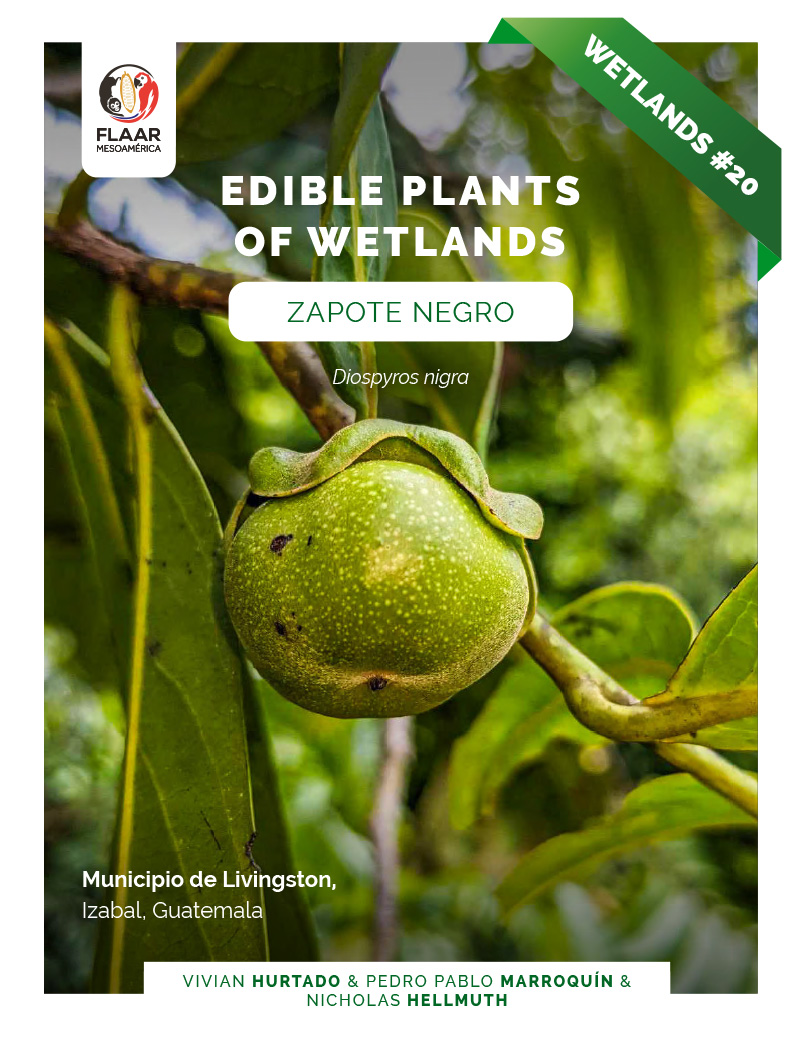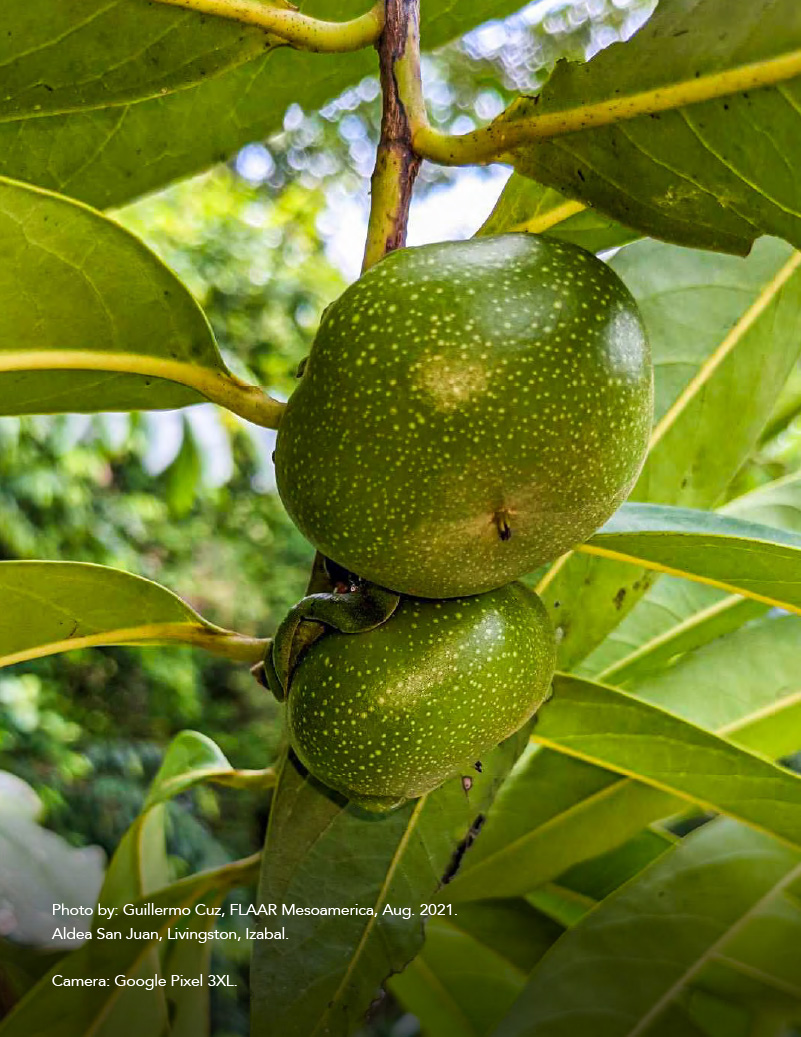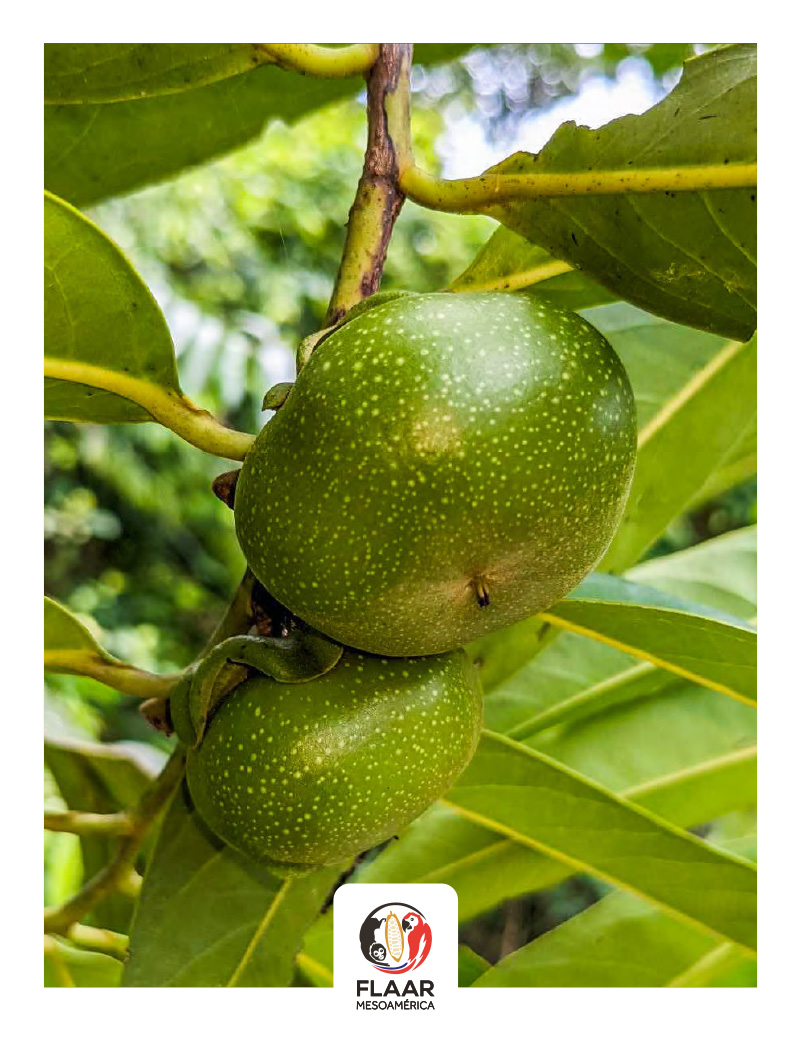Discover the world of Zapote Negro, a rare and nutritious fruit that is gaining popularity among health enthusiasts and food lovers alike. This dark-skinned treasure offers a unique flavor profile and numerous health benefits. If you're looking to explore the wonders of Zapote Negro, this article will provide everything you need to know.
Zapote Negro, also known as Black Sapote, is a tropical fruit native to Central America and Mexico. It has been cherished for centuries due to its rich taste and medicinal properties. As more people become aware of its benefits, it is slowly making its way into global markets.
This article will delve deep into the origins, nutritional value, culinary uses, and health benefits of Zapote Negro. Whether you're a foodie, a health enthusiast, or simply curious about exotic fruits, this guide will be an invaluable resource.
Read also:Does Bobby Schofield Have Down Syndrome Unveiling The Truth
Table of Contents
- The Origin and History of Zapote Negro
- Nutritional Profile of Zapote Negro
- Health Benefits of Consuming Zapote Negro
- Culinary Uses and Recipes
- Zapote Negro vs. Other Fruits
- Where to Find Zapote Negro
- Cultivation and Harvesting
- Proper Storage Techniques
- Sustainability and Environmental Impact
- The Future of Zapote Negro
The Origin and History of Zapote Negro
Native Roots
Zapote Negro, scientifically known as Diospyros digyna, originates from the tropical regions of Central America and southern Mexico. For centuries, it has been a staple in the diets of indigenous communities due to its rich flavor and nutritional value. The fruit's name translates to "black sapote" in English, referring to its dark, almost black skin.
Historically, Zapote Negro was used not only as a food source but also for its medicinal properties. Indigenous people believed that the fruit could treat various ailments, including digestive issues and respiratory problems.
Global Recognition
Today, Zapote Negro is gaining recognition worldwide. Its unique taste, often described as a mix of chocolate and caramel, has captured the attention of chefs and food enthusiasts globally. As awareness grows, so does the demand for this exotic fruit.
Nutritional Profile of Zapote Negro
Zapote Negro is not just delicious; it is also incredibly nutritious. Packed with essential vitamins and minerals, it offers numerous health benefits. Below is a breakdown of its nutritional components:
- Vitamins: Rich in Vitamin C, Vitamin A, and B-complex vitamins.
- Minerals: Contains potassium, magnesium, and calcium.
- Fiber: High in dietary fiber, aiding digestion.
- Antioxidants: Loaded with antioxidants that help combat free radicals.
Health Benefits of Consuming Zapote Negro
The health benefits of Zapote Negro are vast and varied. Incorporating this fruit into your diet can lead to improved overall well-being. Here are some of the key benefits:
- Boosts immune system function.
- Supports cardiovascular health.
- Improves digestion and gut health.
- Aids in weight management.
- Promotes healthy skin and hair.
Culinary Uses and Recipes
Delicious Desserts
Zapote Negro's rich, chocolate-like flavor makes it an excellent ingredient for desserts. Here are a few recipe ideas:
Read also:Why Thomas Ceccon College Is Revolutionizing Education Today
- Zapote Negro Smoothie
- Zapote Negro Chocolate Pudding
- Zapote Negro Cake
Savory Dishes
Beyond desserts, Zapote Negro can also be used in savory dishes, adding a unique twist to traditional recipes. Try incorporating it into:
- Zapote Negro Salsa
- Zapote Negro Salad Dressing
Zapote Negro vs. Other Fruits
While Zapote Negro shares similarities with other tropical fruits, it stands out due to its distinct flavor and nutritional profile. Below is a comparison with some popular fruits:
- Avocado: Both are rich in healthy fats, but Zapote Negro offers more Vitamin C.
- Banana: Both are high in potassium, but Zapote Negro has a richer flavor profile.
Where to Find Zapote Negro
Although Zapote Negro is not as widely available as other fruits, its popularity is increasing. You can find it in:
- Specialty fruit markets.
- Online retailers specializing in exotic fruits.
- Farmers' markets in regions where it is grown.
Cultivation and Harvesting
Successfully cultivating Zapote Negro requires specific conditions. It thrives in tropical climates with well-drained soil. Harvesting typically occurs when the fruit has reached its peak ripeness, indicated by a soft texture and dark skin.
Challenges in Cultivation
Growers face challenges such as pest control and ensuring proper pollination. However, with proper care and management, Zapote Negro trees can produce abundant yields.
Proper Storage Techniques
To preserve the quality of Zapote Negro, proper storage is essential. Here are some tips:
- Store at room temperature until fully ripe.
- Once ripe, refrigerate to extend shelf life.
- Avoid freezing, as it can damage the fruit's texture.
Sustainability and Environmental Impact
The cultivation of Zapote Negro aligns with sustainable agricultural practices. By supporting local farmers and choosing organic options, consumers can contribute to environmentally friendly practices.
Environmental Benefits
Growing Zapote Negro trees can help combat deforestation and promote biodiversity. The trees provide habitat for wildlife and contribute to soil health.
The Future of Zapote Negro
As awareness of Zapote Negro continues to grow, its future looks promising. With increasing demand and recognition of its health benefits, it is likely to become a staple in global markets.
Research and Development
Ongoing research is exploring new ways to enhance the cultivation and nutritional value of Zapote Negro. This includes developing disease-resistant varieties and improving harvesting techniques.
Conclusion
Zapote Negro is a remarkable fruit with a rich history, impressive nutritional profile, and versatile culinary applications. Whether you're seeking to improve your health or simply enjoy a delicious treat, this exotic fruit offers countless possibilities.
We invite you to explore further by trying new recipes or sharing your experiences with Zapote Negro. Leave a comment below, and don't forget to check out other articles on our site for more fascinating insights into the world of exotic fruits!
Data and references for this article were sourced from reputable agricultural journals, nutritional studies, and expert opinions, ensuring the highest standards of accuracy and reliability.


